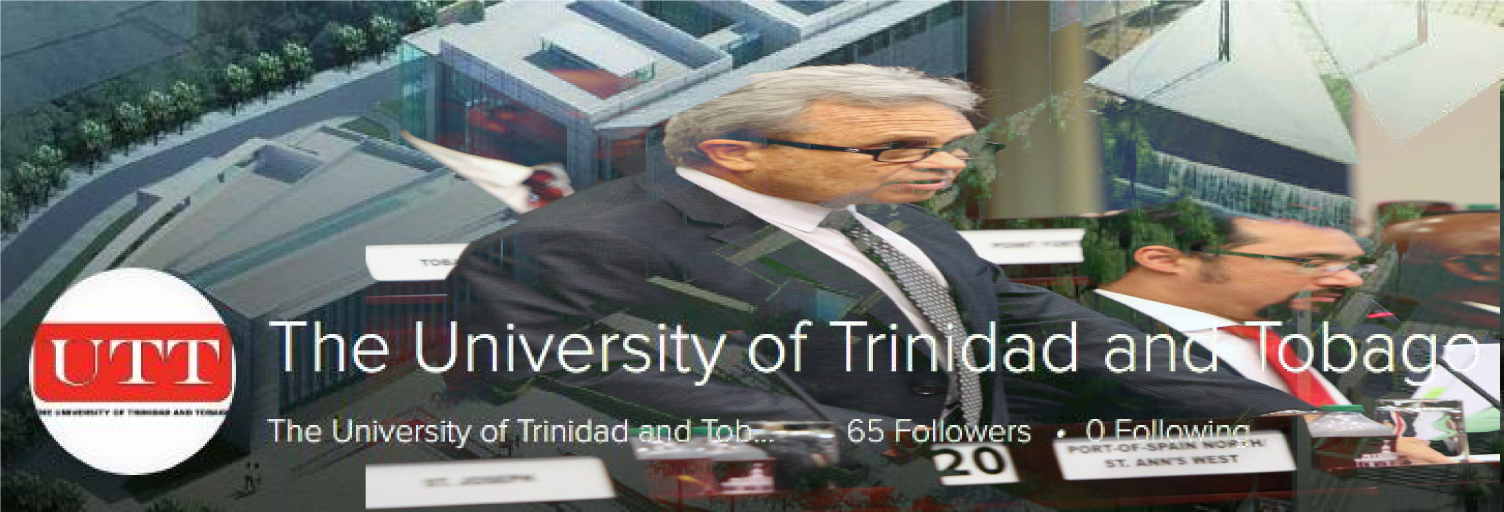
Due process was not followed by the University of Trinidad and Tobago (UTT) in dismissing about 70 lecturers on May 11, 2018. On that day, I was one of eleven lecturers who were wrongly and arbitrarily fired from the Centre for Education Programmes (CEP) as part of the University’s stated “restructuring exercise.”
Due process is a universal industrial relations procedure which must be afforded to each individual – in an orderly sequence of steps – to avoid prejudicial or unequal treatment culminating in court action against a company, organisation or institution.
The steps of this process include the following: (i) consultation with the affected employee, (ii) prior notice of dismissal, (iii) presentation of evidence by the employer, (iv) an opportunity for the employee to respond, (v) representation of the employee by an attorney, (vi) notice of dismissal, (vii) a right to appeal, and (viii) a right to judicial review.
To deny due process to a dismissed employee is to violate and deprive him/her of his/her procedural, substantive and constitutional rights especially from a public institution like the UTT. Due process does not prescribe the reasons why a worker may be dismissed, but rather the procedures an employer must follow before dismissal.
The UTT breached its own human resources policy outlined in its official published Handbook. In Policy Ref. No. HR 17, Clause iv, the Separation Policy states: “Before an employee is dismissed, the University will ensure that due process has been followed in arriving at the decision to dismiss.” The Separation Policy was signed by UTT’s Chairman Professor Kenneth Julien on 17th March 2009.
Section 4 (a) of the Constitution also recognizes the fundamental human right of an individual to due process. The landmark judgment of TD No. 130 of 1994 – delivered on 17th June 1996 by His Honour Mr. Addison M. Khan – made it clear that due process is the underlying philosophy of good industrial relations practice in T&T.
No consultation before dismissal
One of the due process steps to be followed – before formal notice of dismissal is given to the affected employees – is consultation. The purpose of this type of meeting is to explore all reasonable options to save jobs while cutting costs in the operation of the workplace. The UTT failed to consult with us (and I assume with the other 60+ lecturers in other campuses) before the premature termination of our 3-year contracts. Consultations were never afforded to us, either individually or collectively.
The Retrenchment and Severance Benefits Act NO. 32 of 1985 of T&T stipulates that “prior to the giving of formal notice in writing of retrenchment,” [the employer] is expected “to enter into consultation” with the affected employees or their representative union “with a view to exploring the possibility of averting, reducing or mitigating the effects of the proposed retrenchment.”
Dr Judy Rocke, Head of the Centre for Education Programmes, had summoned each one of us by phone mere hours before to attend an “urgent meeting” at the Valsayn Campus. Some lecturers were called out of their vacation. Without any prior consultation or notice, eleven of us appeared before her. Although we had asked Rocke about the nature of the meeting, she did not reveal to us that we were going to be dismissed that same day. In the presence of the Human Resources Officer, Al Salandy, she served us dismissal letters.
We were astonished!! A couple of lecturers became emotional, broke down in tears and collapsed. One became so weak and disoriented that she had to call her sister at her workplace to come and walk her to her car and drive her home. Another was hit with a sharp migraine headache and became temporarily blinded.
No prior notice before dismissal
Like that of the other lecturers, my letter, dated May 11, 2018, stated: “This letter serves as forty-five (45) days’ notice of the termination of your employment by reason of redundancy.” Our dismissal letters were not letters of advance notice of dismissal; they were in fact notices of instant dismissal. The letters notified us that we were not permitted “to report for duty” thereof, but “permitted a period of one (1) week from the date hereof to collect your personal effects from your workspace.”
Although we were paid up to the end of the notice period, the dismissal was administratively and procedurally wrong. It was a “wrongful” act because of the method used to terminate our employment at UTT. Section 10(5) of the Industrial Relations Act 1972 stipulates that dismissal in such circumstances is “harsh and oppressive” and “not in accordance with the principles of good industrial relations practice.”
The dismissal was too abrupt. Done without consultation, and any prior oral or written notice, my attorney, Roshni Balkaran, described this sudden dismissal as “an ambush.”
Dr Mahabir taught several courses at UTT including Written Communication.





The blogmaster invites you to join the discussion.